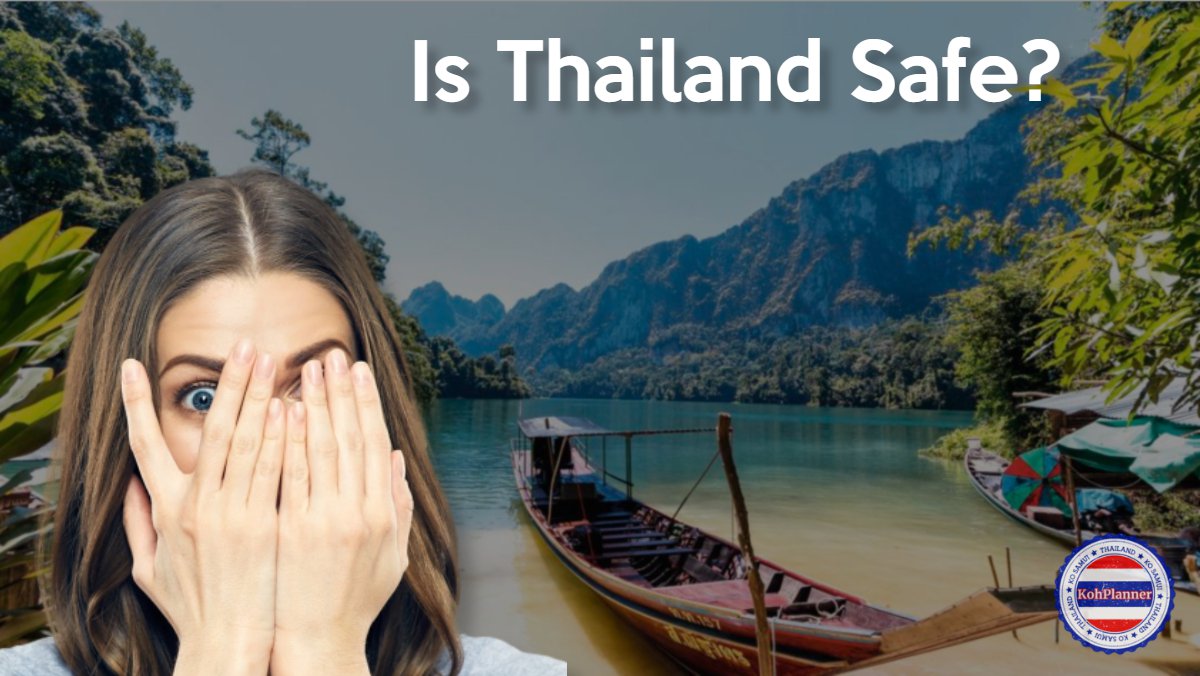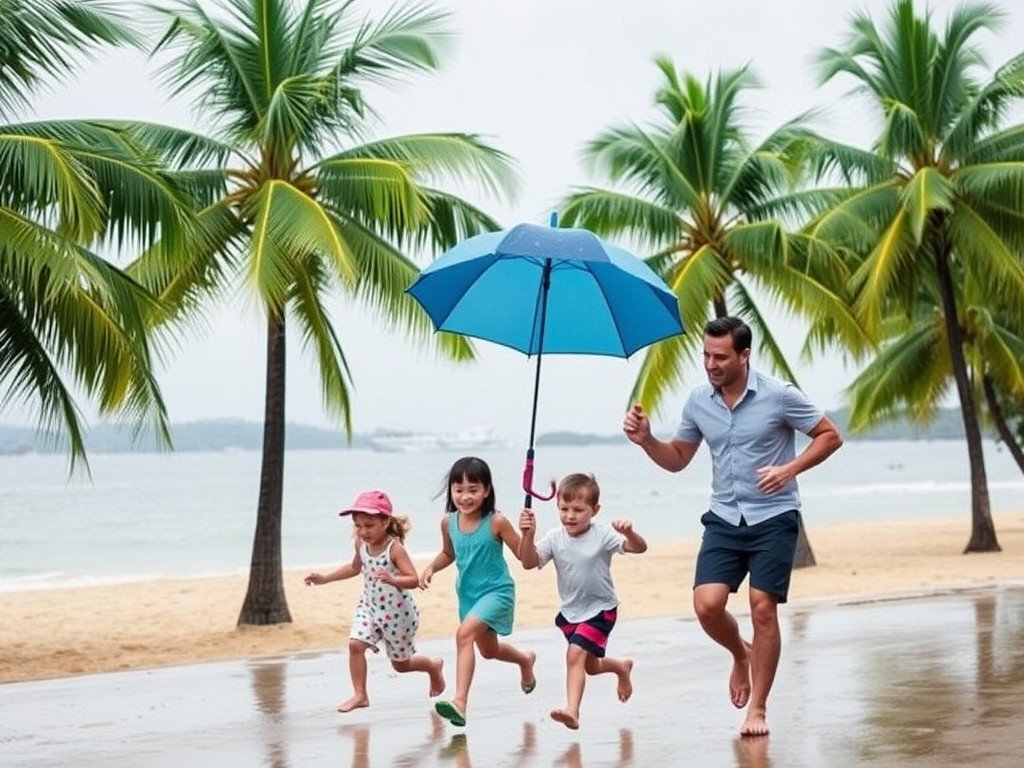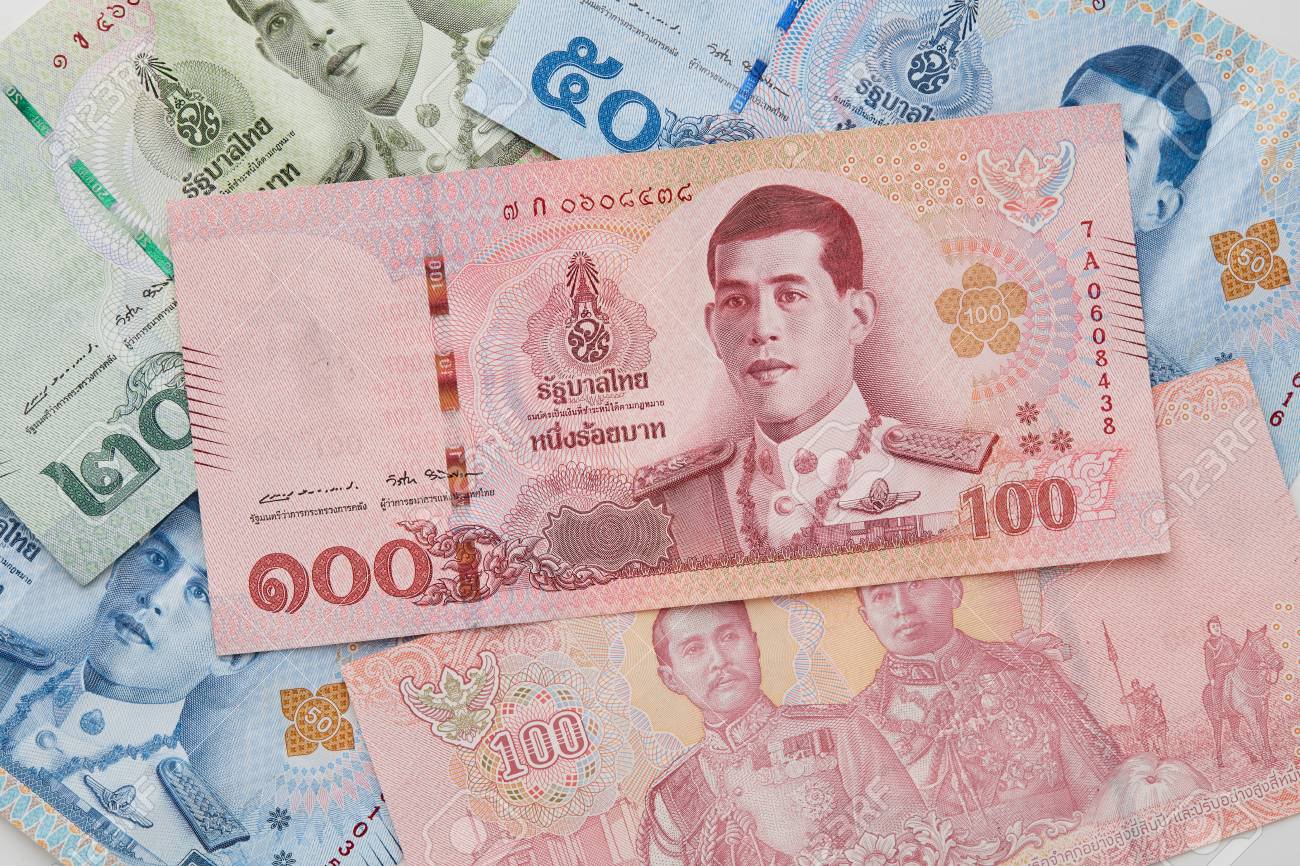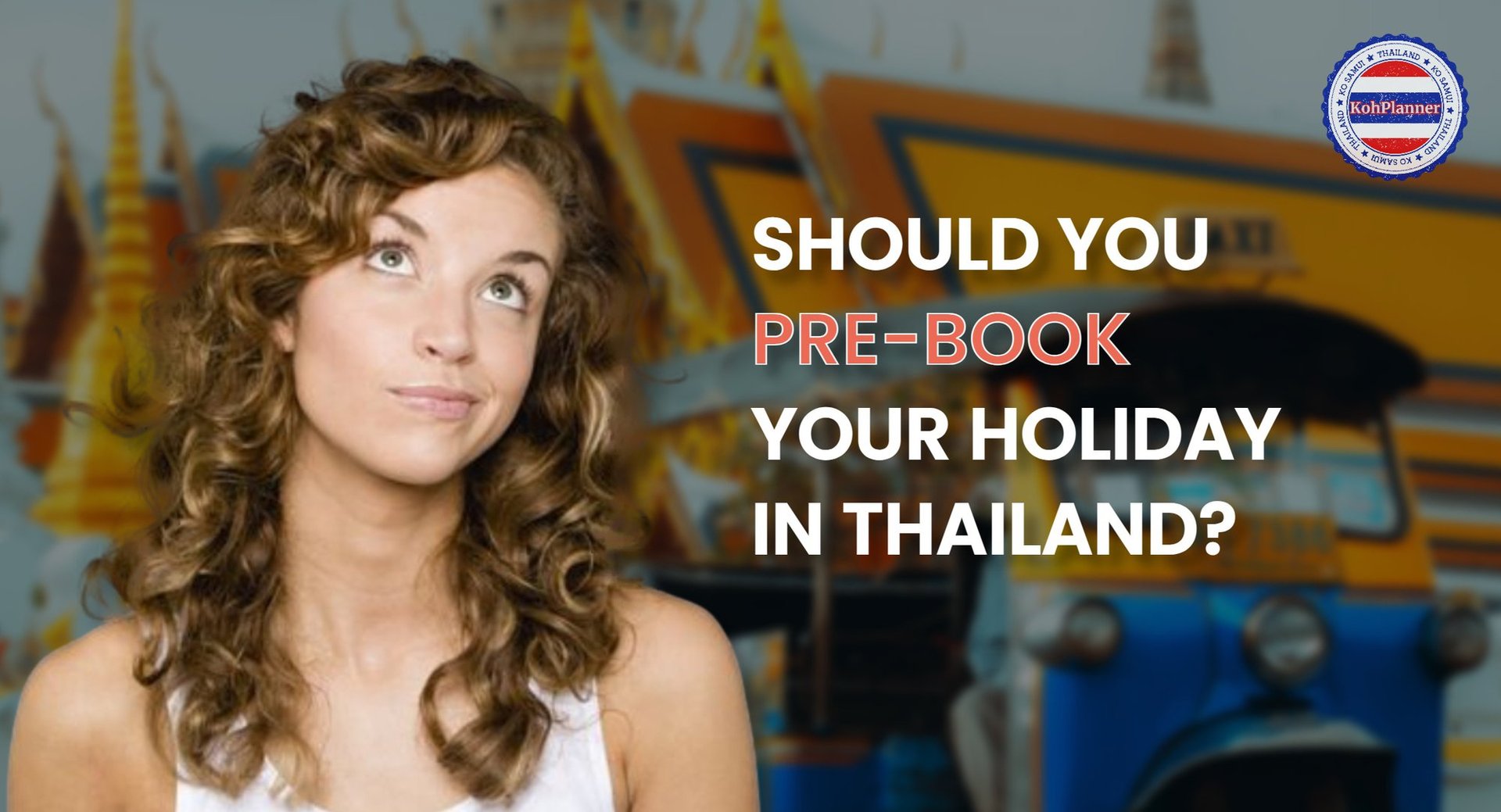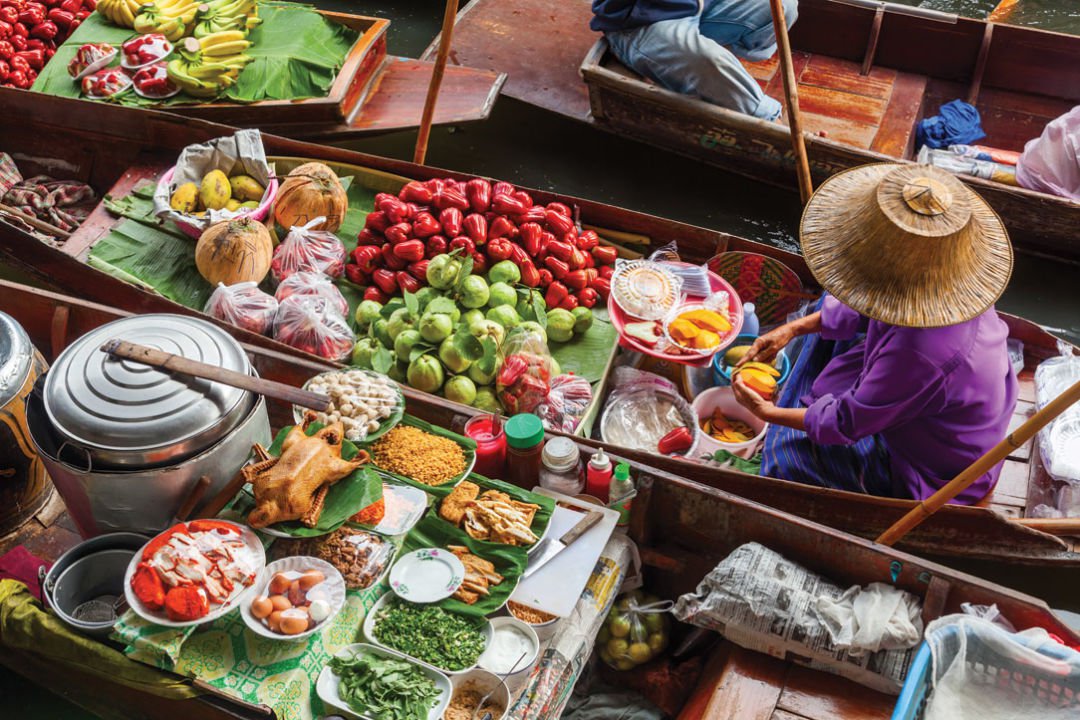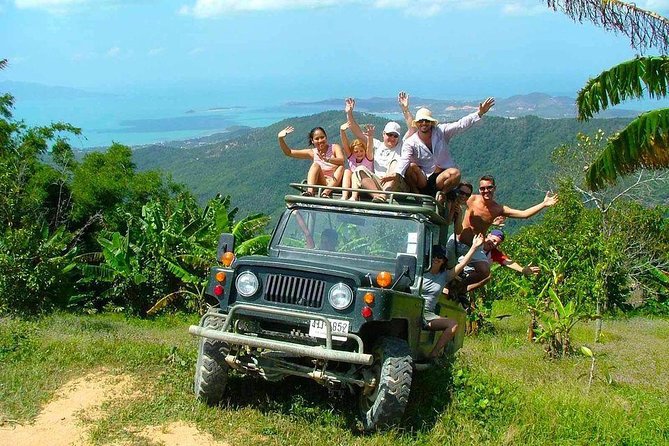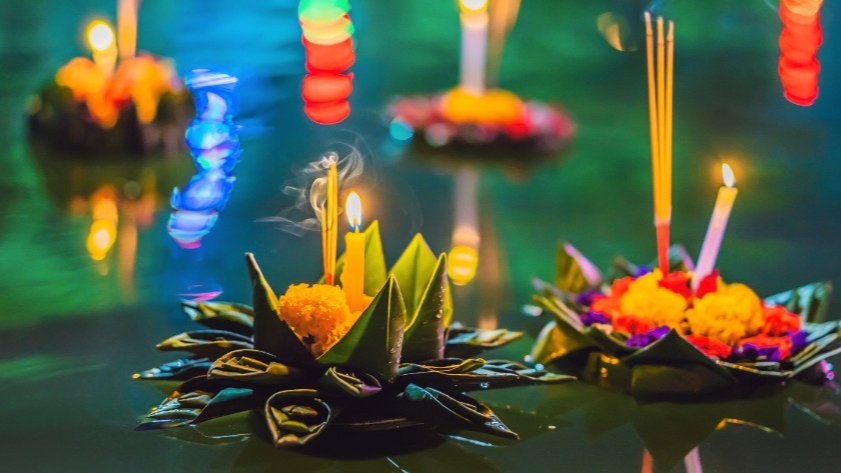Is Thailand Safe?
A Guide to Thailand Safety for Holidaymakers.
Thailand, known for its vibrant culture, stunning landscapes, and warm hospitality, is one of the most popular destinations for holidaymakers from around the world. As with any other exotic destination, it is essential to be aware of potential risks to ensure a safe and enjoyable trip. In this article, we will list the main risks, areas of concern, prevention tips, and advice on what to do if something unexpected occurs.
But first let’s start by answering the main question. Is Thailand Safe? And the answer is a resounding yes. With low criminality, welcoming hosts, a dedicated and competent Tourist Police and first class private hospitals, Thailand is considered a safe destination. As with any other country in the world, there are some health and safety aspects to be aware to prevent spoiling an amazing holiday experience.

As well, as a rule of thumb… use common sense and don’t do anything you wouldn’t do in your own country. We don’t want to be mean, but sometimes we ask ourselves if people left their brains in the airport when visiting Thailand… 😂. Perhaps because of all the smiles and laid back atmosphere of relaxation in Thailand, some people just forget to think?
For an extra piece of mind, we suggest to our registered users to fill the Emergency Contact section on your KohPlanner account. *Note we will only share this contact with the police, a hospital or your embassy or consulate.
1. Road Accidents:
Thailand experiences an alarming number of road accidents each year among tourists, most of them involving scooters. Here are some statistics and tips to keep in mind:
- Thailand has a very high rate of road accidents, especially involving motorcycles. The average for an island like Koh Samui is 30 to 60 road accident deaths per month. Compared to the world average and based on population, these figures are very high. Most accidents involve inexperienced or overconfident scooter drivers, with data showing more than 80% of all accidents recorded last year (2022) related to motorcycles.
- We can’t emphasise it enough: If you are an inexperienced motorbike driver, please, please DO NOT ride a scooter during your holiday in Thailand. We suggest you rent a car instead. Thailand is not the place to learn to ride a motorbike.
- If you rent a motorcycle or scooter, always wear a helmet.
- Observe traffic rules and be cautious of erratic driving behaviour. For example, for some reason Thais are not familiar with roundabouts so don’t expect to be given preference.
- Stay alert for pedestrians and stray animals on the roads.
- We often see western families with 3 and 4 people, including children on a scooter. This is a recipe for disaster. Don’t do it! Just rent a car.

2. Diseases:
Like many tropical countries, Thailand has its share of diseases that you should be aware of. The chances of getting a pesky bug using caution are slim. Here are some common diseases and preventive measures:
- Dengue fever is prevalent in Thailand. Use mosquito repellent, wear long sleeves and trousers, and avoid stagnant water areas.
- If there is flooding, avoid getting in contact with water. It may contain debris and organic waste (💩).
- Pre-departure: Consult your healthcare provider regarding necessary vaccinations and medications before travelling to Thailand. Common vaccinations include hepatitis A and B, typhoid, and tetanus.
- During travel: Practice good hygiene by washing hands frequently, drinking bottled water, and avoiding street food from unhygienic stalls.
- After travel: If you experience any symptoms of illness after returning home, seek medical attention promptly and inform your healthcare provider about your recent travels.
3. Food Safety:
Sampling local cuisine is an integral part of a holiday in Thailand, but it’s important to be mindful of food safety. Consider the following tips:
- Drink bottled water only or use water purification tablets to avoid water-related illnesses.
- Be cautious when eating street food, ensuring that your meat and fish are cooked thoroughly and served hot.
- Sanitise your hands regularly.
- Inform vendors and restaurants about any food allergies or dietary restrictions.
4. Climate:
Thailand’s climate can vary significantly across different regions. Here are some climate-related risks and precautions:
- Protect yourself from sunburns by applying sunscreen regularly, wearing hats, and seeking shade during peak sunlight hours. If you still get roasted, try a coconut oil massage to recover from your sunburns faster!
- Stay informed about weather forecasts and be prepared for sudden rain showers or storms.
- In flood-prone areas, avoid walking or driving through flooded streets. Again, talking about common sense, we have seen tourists playing with inflatables in standing water like you do in a swimming pool… Not so funny considering they were playing among debris and sewage water.

5. Wild Animals:
Encountering wildlife can be an exciting experience, but it’s important to be cautious. Here are some animal-related risks:
- Beware of blue jellyfish season when swimming in certain coastal areas. Ask locals for information on potentially dangerous marine life. If a blue jellyfish stings you, apply vinegar generously on the wound for at least 30 seconds. Do not touch the tentacles, pour fresh water or urine on the wound (*we have seen this!😬), because you will 100% aggravate the situation. Seek medical attention immediately.
- Be cautious of snakes when exploring nature reserves or hiking trails. If you encounter a snake, maintain a safe distance and avoid provoking them.
- Refrain from petting or feeding stray dogs or playing with monkeys as they may carry diseases.
- Protect yourself from mosquito-borne diseases by using insect repellent and wearing long sleeves and trousers.
6. Scams:
While Thailand is generally safe, there are occasional scams targeting tourists. It is very unusual to be robbed in Thailand, most you will find is petty scams. However, stay vigilant with the following typical scams to avoid an unpalatable experience:
- The lost wallet scam: A person will approach you and tell you that they have lost their wallet and need money to get home. They may even show you a fake ID or passport.
- The fake monk scam: A person dressed as a monk will approach you and ask for money. They may claim to be collecting donations for a temple or charity.
- The gem scam: A vendor will show you a valuable gem at a very low price. However, the gem is usually fake.
- Leaving the passport as a deposit to rent a car, scooter or jet sky. At return, the renter will find damage to the vehicle and ask for an exorbitant amount of money to repair it. If you don’t pay, they may keep your passport for ransom.
- The tuk-tuk scam: Someone out of the blue, with a big smile, will offer you help to find a taxi or a tuk-tuk for a tour. The tuk tuk driver instead of driving to interesting places, will take you to souvenir shops and tailors who pay him commission.
- The taxi scam: A taxi driver will take you on a longer route than necessary, or they will overcharge you, refusing to turn on the meter. As in most of Southeast Asia, mafias dominate the taxi industry, especially in small towns and islands. They make drivers pay a significant portion of their earnings to operate. Sometimes it is not necessary the driver’s fault. First ask the driver to turn on the meter, if unsuccessful negotiate a sensible fare before starting the run.
- Be cautious of unofficial tour guides who may offer attractive deals but could be scams. Stick to licensed tour operators recommended by reputable sources. Feel free to book activities through KohPlanner or our partners. All activities are verified and accredited by us or our partners.

As a rule of thumb, follow these simple tips, and you will be absolutely fine with pesky scammers:
- Ignore any unsolicited offers from strangers, especially those involving gemstones and invitations to taxis, tuk tuks or private establishments.
- Ignore anyone asking for money, especially if they are dressed as a monk.
- NEVER leave your passport as deposit to anyone.
- Use the safe at your resort to keep your documents and valuables.
- Use our car hire partner to rent your car from well-known and established car rental companies such as Herz, Budget, Avis, etc.
- Book verified and certified activities through KohPlanner or our partners.
- Report any suspicious activity to the police.
Remember that Thailand is generally safe, with safety concerns similar to most countries worldwide. By being informed and taking precautions, you can ensure a worry-free holiday.
In the event of an accident or emergency, contact the local authorities or your country’s embassy for assistance. We will be publishing an Emergencies Directory with information about hospitals, police stations and embassies. Stay updated with travel advisories and consult reputable sources for the latest information on safety in Thailand. Don’t forget to update your account on KohPlanner with an emergency contact.
Enjoy your travels in the Land of Smiles!

